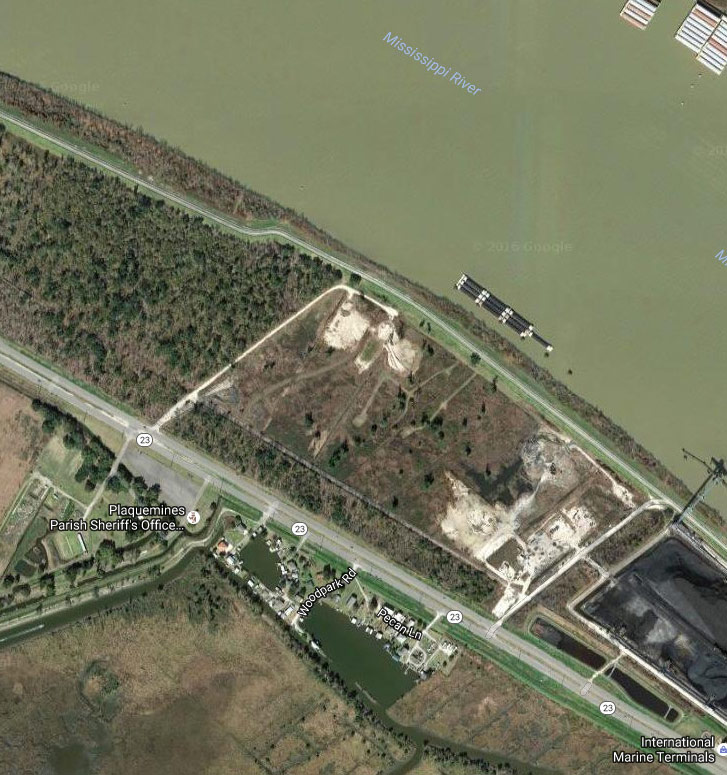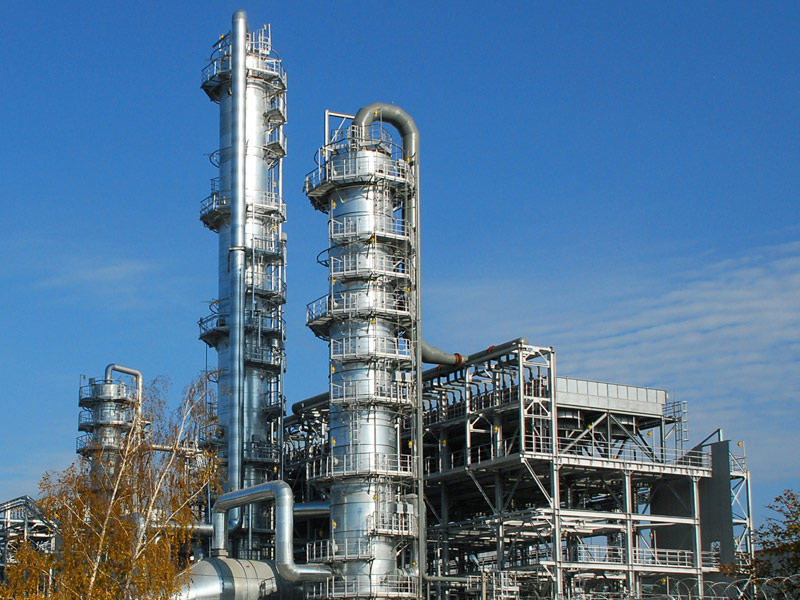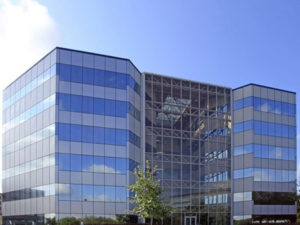Gulf Coast Methanol Park
IGP’s use of licensed technology and proprietary plant design will reduce plant CO2 emissions by 66% compared to competing technologies and by 92% compared to coal-based methanol production.
Our process lowers consumption of natural gas and generates more complete conversions of syngas to methanol, driving lower SOx, NOx, CO, CO2, and PM emissions than existing natural gas-to-methanol plants.
IGP’s proprietary plant design will lead to a smaller physical footprint, less land use, less water use, and less steel consumed in construction.
The potential addition of Carbon Capture, Utilization and Storage technology (CCUS) could cut CO2 emissions by another 95%.
A World-Class Investment Supporting Louisiana’s Energy Industry
IGP Methanol, LLC (IGPM) has completed the site geotechnical work needed to construct and operate a new methanol facility near Myrtle Grove, in Plaquemines Parish, Louisiana. The technical work included 36 new Bore Holes and 86 Cone Penetration Tests across the entire site. The IGPM Gulf Coast Methanol Park will be a large-scale methanol plant based on natural gas.
IGPM will develop and build the plant in phases on a 140-acre parcel adjacent to the Mississippi River. The facility will produce refined methanol from natural gas, water, and oxygen.
The process uses standard chemical manufacturing to produce methanol. Pure methanol is sent to dedicated tanks then transferred to the marine vessel loading facilities. A product loading system will be installed at the existing dock, with a vapor recovery system, recycling product back to the facility to reduce emissions and provide best in class safety.
See some familiar products made with methanol.

Environmental Overview
The potential impacts to the air will be minimal and will not cause any significant adverse impacts. The air emissions result primarily from four in-line boilers, four process heaters, one auxiliary boiler, four backup flares only used for startups and shutdowns, five emergency generators, eight ammonia storage tanks, 14 product storage and day tanks, marine vessel loading, fugitive emissions, and wastewater equipment.
The whole plant has been engineered for efficiency. Wherever technologically feasible, control equipment (e.g., tank/vessel scrubbers) are employed to recover methanol emissions and recycle it back into the process with 95-98% efficiency. The boiler and related process equipment will emit only those substances associated with burning of clean fuel (i.e., natural gas) and small amounts of process gases.
A Clean Air Act Title V permit has been granted.
IGPM has designed the facility and structured operations such that land impacts are avoided or minimized to the maximum extent possible. The facility is not anticipated to create any significant adverse environmental impacts. Impacts on wetland and coastal resources will be addressed using approved mitigation. No disposal of solid or liquid waste is planned for the facility.
IGPM will design, construct, and operate the facility in accordance with best engineering practices to provide maximum safeguards for the protection of the groundwater and surrounding environment. The facility is designed to meet or exceed existing environmental regulations in a manner that minimizes the potential for accidental releases. Safeguards are included in the design to contain any release and minimize offsite consequences.
Economic Overview
The facility will host four methanol production units. Each will result in a $1.5–1.6 billion investment.
- Construction of each unit will take approximately 26 months with some overlap of subsequent units.
- Construction will create approximately 2,322,000 labor-hours of work with an estimated 900 individual tradespeople employed during the process
- Operations will require approximately 325 full time positions at the facility. These include managers, procurement, accounting, IT staff, clerical, plant operators, maintenance staff, health and safety staff, engineers, laboratory, control room operators, security mechanics, welders, electricians, control technicians and warehouse staff. In addition, some services will be contracted from local vendors.
- Trades required include expeditors, equipment operators, millwrights, ironworkers, riggers, pipefitters, welders, electricians, carpenters, masons, along with apprentices and laborers.
- It is estimated that a significant portion of the materials required for construction can be purchased regionally, generating additional jobs

Project Overview
Best in Class Team
IGPM has secured key operating companies in the project:
- The plants will be licensed with the proven methanol conversion technology of Haldor Topsøe, which has been used in over 80 facilities worldwide.
- Linde intends to build, own, operate, and maintain the Air Separation Units.
- Veolia plans to build and operate the water treatment and wastewater plant.
- Entergy intends to build a dedicated electrical substation or our site.
Best in Class Technology
- Haldor Topsøe’s proven methanol conversion technology has been used worldwide
- The SynCOR™ AutoThermal Reformer from Haldor Topsøe is extremely efficient, with no emissions to the atmosphere and the IGPM design recycles enough steam to drive the Air Separation Units, further reducing emissions.
- Vapor recovery is applied at each point that methanol might escape to the atmosphere, with captured methanol returned to the process.
- Selective catalytic reduction technology is applied on each of the boilers and combustion sources to reduce regulated emissions.
- Water treatment allows for the recycling of the majority of the water streams reducing both water needs and discharges.



